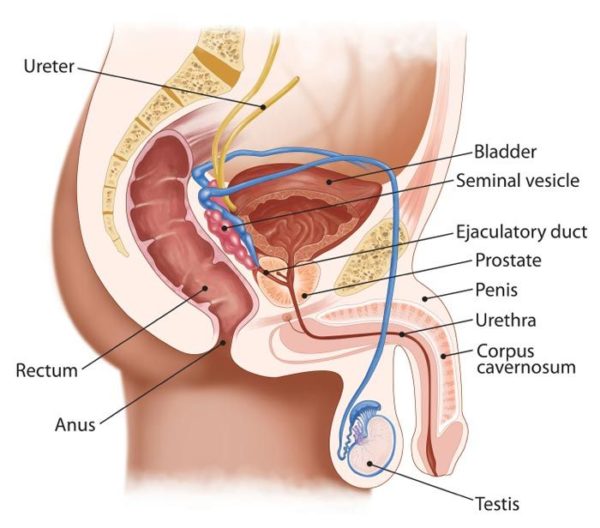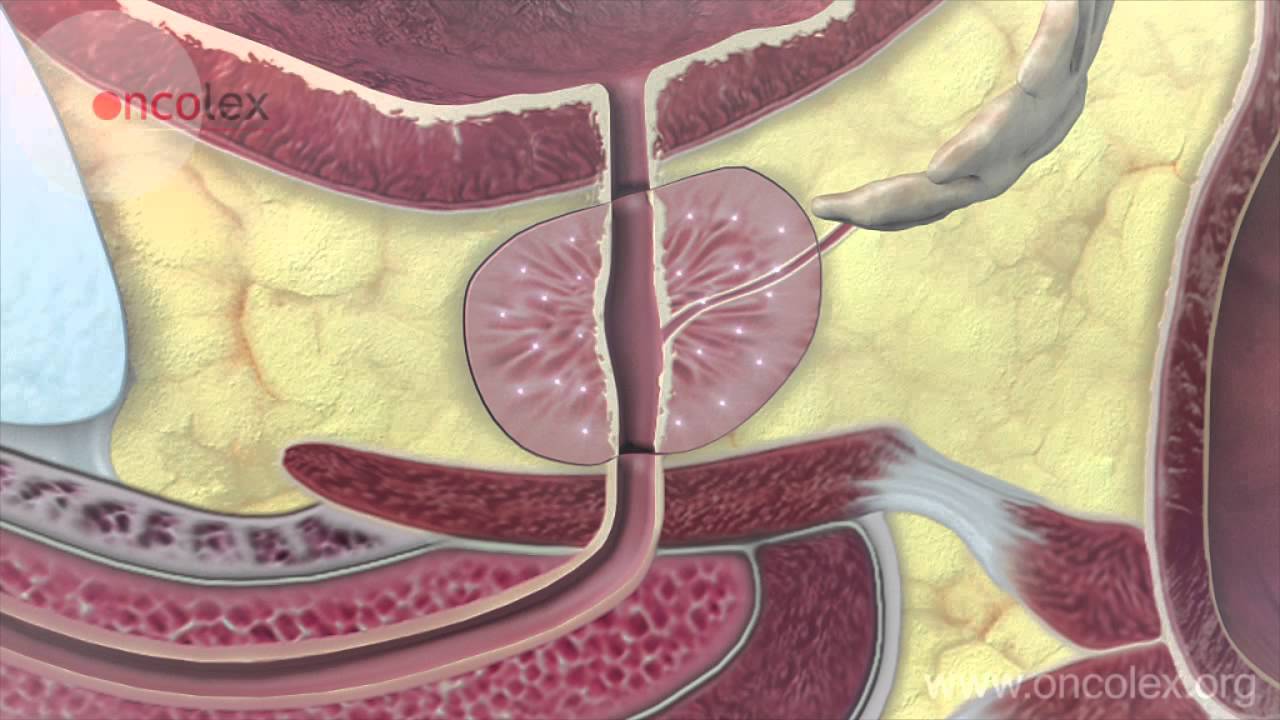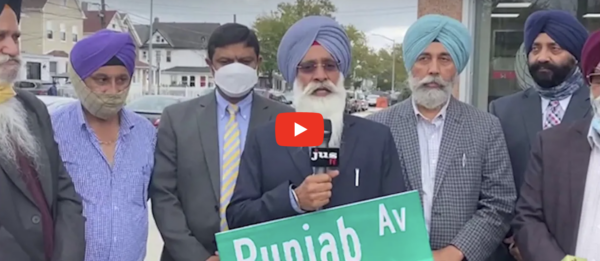To know about Prostate Cancer Symptoms. First, we need to explain about Prostate Gland.
The prostate is a gland that every man has like any other body part. It is part of the organ of the male reproductive system. It works as a part of producing aqueous alkaline in nature for reproduction (secretes a fluid that nourishes and protects sperm). The prostate cancer symptoms surface as the gland grows with age in most of the men in later life, after the age 0f 50 years.
The problem is known as Benign Prostatic Hyperplasia(BPH). With age over 50 years, the prostate gland grows bigger in size and begins to press the urethra that passes through the gland carrying urine to the penis.Within the prostate, the urethra originating from the bladder is called the prostatic urethra and joins with the two other ejaculatory tubes or ducts.
Urination gets restricted due to pressure on the urethra, the tube that carries urine from bladder to penis. Half of the men have BPH symptoms and require treatment. BPH pushes towards the prostate cancer that may afflict the person.
 Photo Source: pinterest.com – Side view of prostate
Photo Source: pinterest.com – Side view of prostate
What Are the Most Common Prostate Problems?
Three common problems come due to the prostate namely: AA) BPH ( Benign Prostatic Hyperplasia) BB) Prostatitis CC) Prostate Cancer
AA) BPH( Benign Prostatic Hyperplasia)
is non-cancerous
The enlargement of the prostate gland with increasing age is natural. It is very common, but seldom causes signs earlier than age 40. As per the American Urological Association, about half of men within ages 51 and 60 and up to 90% of males grown over the age 80 have BPH.
BPH have the following signs
- Urinating increases to frequent intervals
- Patient gets up more often to pee in the night
- Trouble in urinating to start, or find it hard to continue after starting
- The desire to urinate despite when the bladder is empty
- A weak or broken stream of urine and a feeling of deficient emptying during urinating
BB) Prostatitis
Prostatitis is swelling of the prostate due to bacterial infection. Males of any age can get it, and it can transpire in any size prostate (enlarged or not). The word prostatitis points, in its strictest sense, too little swelling of the tissue of the prostate gland. Like all forms of swelling, it can get correlated with a fitting reaction of the body to a disease, but it also occurs in the absence of infection.
CC)Prostate cancer:
There is no early stage of the prostate cancer symptoms that the medical science knows. Prostate cancer is found out only through routine tests or the blood test. In addition to the BPH signs prostate cancer symptoms may have the additional indications of advanced cancer of the prostate
- Blood gets noticed while urinating
- Painful urination
- Ejaculation may become painful
- Inability to maintain erection or erectile dysfunction
- Bones pain in lower spine (vertebrae), ribs or pelvis, of and on
- Feeling of weakness in the legs in case cancer spreads out to compress spinal cord,
- Lack of control of fecal matters
3 % of the aged men in advanced countries die of cancer as per the records that is quite a significant figure. As per the American Cancer Society, the men should not get tested unless they know the risks and possible benefits of testing for the Prostate cancer by the age of 45 and before turning 50. Also in case the patient is black or has a family history of acquiring the prostate cancer symptoms before age 65. The test should be either rectal or PSA Prostate Specific Antigen level in the blood or examining for the presence of the protein Engrailed-2 (EN2) in the urine.
The general age is over 65 years. The chief causes of the prostate cancer are 1) Family history. One can trace back and may find that the father and grandfather would have the BPH and got operated.
2) Men of African – American heredity mostly get the prostate cancer when compared to Caucasians or the other races. Usually when the cancer is detected the age is advanced. Those with family history and African – American ancestry get to screening to detect cancer as compared to other races. About 5% to 10 % men get prostatitis or the inflammation or the infection of the prostate by the young age or when they reach middle age. Prostate cancer afflicts mainly older men. Six out of ten cases are diagnosed over 65 but less than 1% in men under 50. It may also be found in men in 30 to 40 years of age. Those with a family history are likely to develop this when compared to the overall community.
On a case-by-case data, doctors cannot say with surety what causes prostate cancer, but experts usually agree that diet adds to the risk. Men who consume large quantities of fat– particularly from red meat and other sources of animal fat– are more prone to develop rare prostate cancer. The complaint is much more prevalent in countries where meat and dairy produce are dietary staples than in countries where the primary diet consists of rice, soybean grain, and vegetables such as broccoli, cauliflower, coleslaw, or sauerkraut.
First stage prostate cancer
Small and an early stage get managed by undermentioned treatment
Energy modulated radiotherapy:
-
- After discussing with the doctor concerned, the Computer controlled linear accelerator method of the therapy gets used. Beams of various intensity used if the prediction is right. Cancer should be in the early stages for good results
- Conformal Radio Therapy: By minimizing the radiation to the projecting portion this method gets used.
- Brachytherapy – radioactive seeds get inserted into the prostate.
- Radical prostatectomy: Operation removes the prostate gland.
- Continuous monitoring: No immediate surgery gets done but a wait and see of the PSA blood level
For more advanced Prostate Cancer the write up will continue for the next publishing







